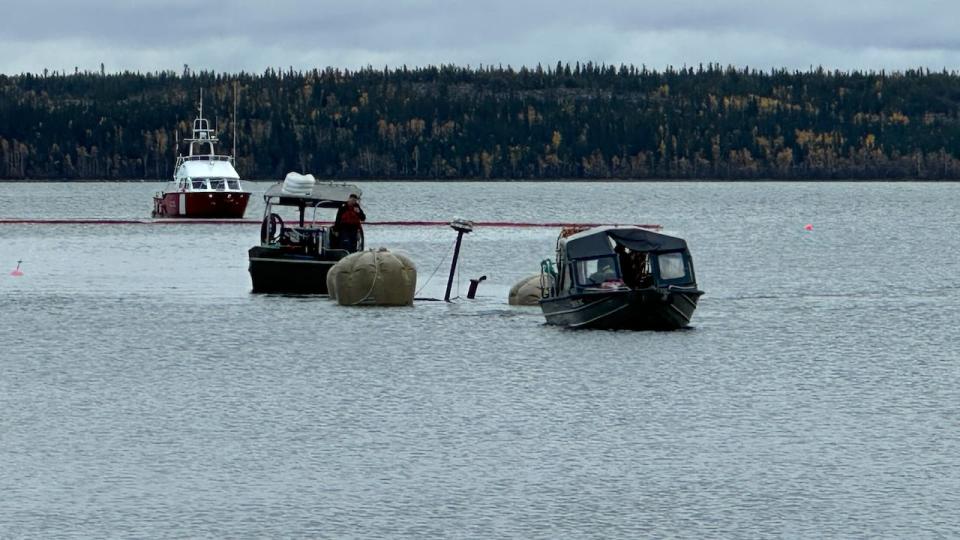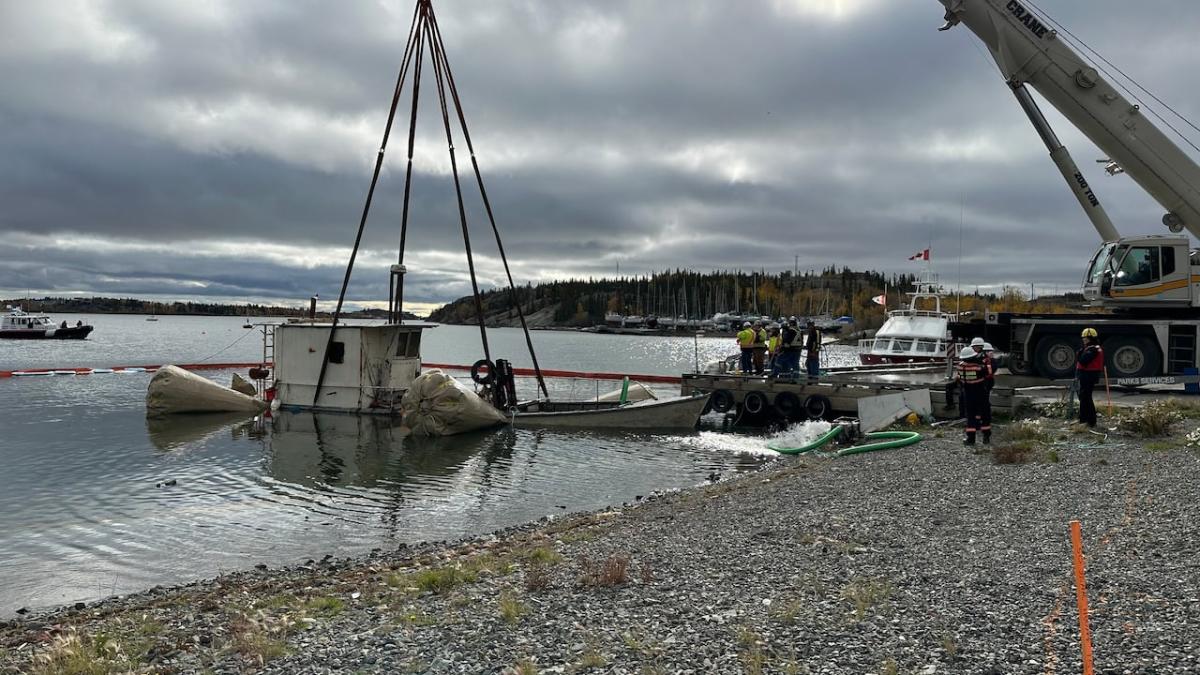The Canadian Coast Guard hauled a sunken fishing vessel out of Yellowknife’s Back Bay on Thursday – a logistical operation the federal agency says it’s paying for, but won’t yet say how much.
Neil Woledge, a Yellowknife man, previously told CBC News he owns the 40-foot steel vessel. He said he’d left it out on the water for two winters without incident, but that trouble struck this time around. A spill report filed to the N.W.T. government said it went down more than four months ago, on May 12.
Robert Brooks, the coast guard’s national director for marine environmental and hazards response, said Thursday that it had hired a team of professional divers as well as a crane company to help lift the vessel.
The coast guard previously said it was struggling to find contractors to help.
Brooks said the recovery plan involved assessing the structural integrity of the boat, floating it to the surface of the water, and using cranes to lift it onto a barge so it could be taken away.

A set of four grey inflatable balloons could be seen floating at the surface of the water. In between them, two pipes poked up and out of the water – a sign that the vessel had been brought up to the surface. Two functioning boats towed the entire rig near the shoreline, where it was then lifted by a crane. (Travis Burke/CBC)
From the Giant Mine boat launch on Thursday, a set of four grey inflatable balloons could be seen floating at the surface of the water. In between them, two pipes poked out of the water – a sign that the vessel had been brought up to the surface.
Two functioning boats towed the entire rig near the shoreline, where it was then lifted by a crane.
Brooks said once the vessel was out of the water, it would be taken to a secure location away from shore and assessed for repairs – which the owner would pay for – or safely dismantled and disposed of.
Coast Guard not putting price tag on cleanup yet
A spokesperson for the coast guard previously told CBC News that the federal agency was paying for the cleanup. On Thursday, Brooks would not say how much it was going to cost.
He said the price was “still being tabulated” and that it would be “premature” to say how much it would be. He also wouldn’t provide a rough estimate of the cost, or say how much the contractors were being paid.
A spokesperson for the coast guard previously told CBC News in an email it could lay a fine under the Wrecked, Abandoned and Hazardous Vessels Act, but that it had chosen not to. They also said the vessel owner was “unable to address the problem vessel.”
Pollution considerations
After the fishing boat sunk, the Canadian Coast Guard placed a containment boom around the vessel and used sorbents – a substance that collects oil molecules – to help with the clean up.
Brooks said the area was monitored regularly afterward, to make sure the boom was working properly.
“We were able to really keep a safe environment,” he said.

